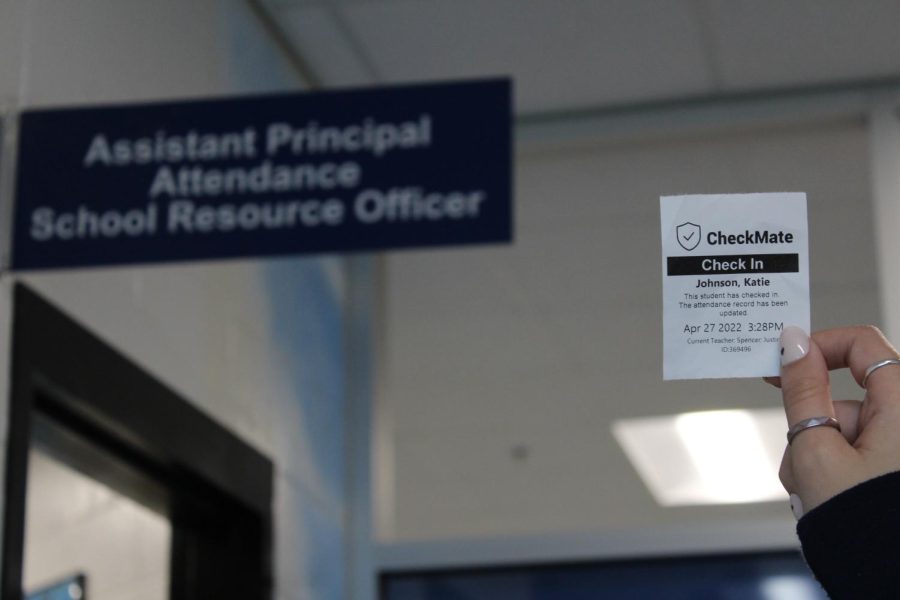Opinion: Tardy policy incentivizes students to stay home
Since the pandemic, attendance policies at school have changed. Students who are late are punished more than kids who do not show up, incentivizing students to just stay home.
It is 9:20 a.m., and I am in a major rush. My first class starts at 9:33 a.m., and I know I need to be in the school parking lot by 9:30 a.m. I scramble to get the last of my clothes on, also while sucking down a protein shake, after I woke up from working the previous night. I am not the best at waking up on time and already have a few tardies. The clock is ticking before I am called to the front office and awarded for my rush with administrative detention.
Attempting to make it, I step on the gas a little harder than normal, choosing to run the risk of law enforcement. I got lucky this morning: all the lights are green and very few cars are on the road. Smiling, I turn the corner and rush into a parking spot, ignoring how crooked I am. As soon as I step out of the car, the bell rings. Slumping against the hood, I check my attendance and realize if I walk in, I will be assigned detention. There is no point now. If I leave, I can just come back tomorrow with no punishment.
Whether students woke up late, had a transportation issue, or their mascara was not looking right, the punishment for tardiness incentivizes students to not come at all.
Time in the learning environment is important and prepares kids for college. Public schools have tardy and attendance policies in place to increase attendance to class, not decrease it. Unintentionally, it is doing the opposite.
According to the school handbook, no in-school punishments are given for absences. With only four tardies, a student receives detention. However, after six tardies, a student is given one day of ISS, missing more class time than if the student had just been tardy. Attendance only restarts after a semester has passed.
With seven tardies, students receive two days of ISS and temporary loss of their parking pass, making it even harder to get to school and missing more classes. So by going home and sparing the disciplinary actions, students get nothing on their record and have another chance to show up on time.
Because of the pandemic, deadlines and attendance have become more flexible and at-home friendly. Most assignments are posted online as well as in class to accommodate students in quarantine, even if they are just absent with no illness. Additionally, students have five days to make up their work for absences, so skipping for a day has no long-term effect.
Missed work can now be made up with no repercussions or stress.
Students should be in school learning, but at what cost? If detention, ISS, or any other repercussion is waiting for students when they walk in a few minutes late, why would they come?
Instead of the harsh punishment, Fayette County should go back to tardies only counting for exam exemptions. With this change, students with proper attendance will be rewarded and the late ones will not miss class.
Getting back in my car, I decide the detention is not worth it and plan to get myself breakfast at Chick-fil-A. I have no tests, quizzes, or graded work to turn in today, so Schoology makeup work will be my best friend this morning.
After I finish my work, I have the entire afternoon to shower, go to work, and run errands, all without a punishment.
Opinions expressed in editorials are those of the writer(s). These views may not represent the adviser, The Prowler, advertisers/sponsors, the Starr’s Mill High School administration or staff , or Fayette County Public Schools as a whole. Please see our FAQs for more information pertaining to the rights of The Prowler’s staff members.


